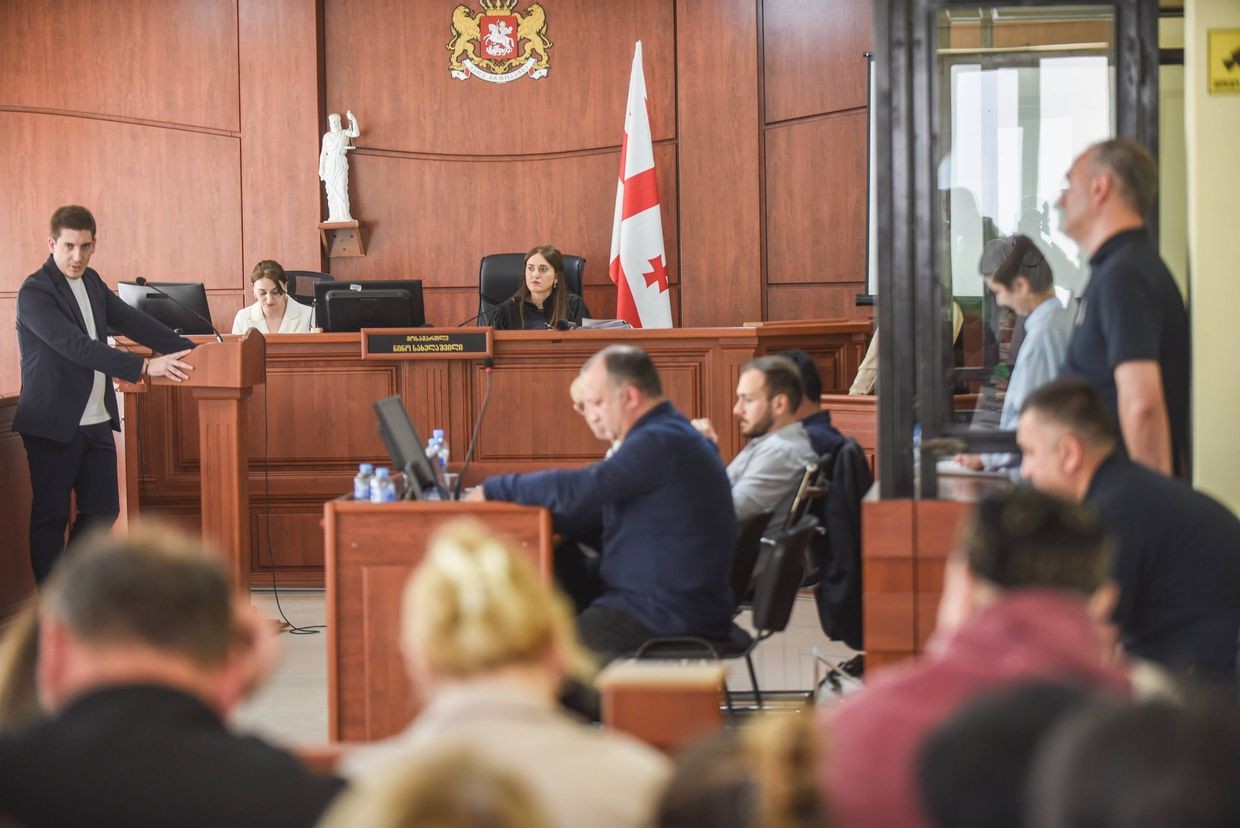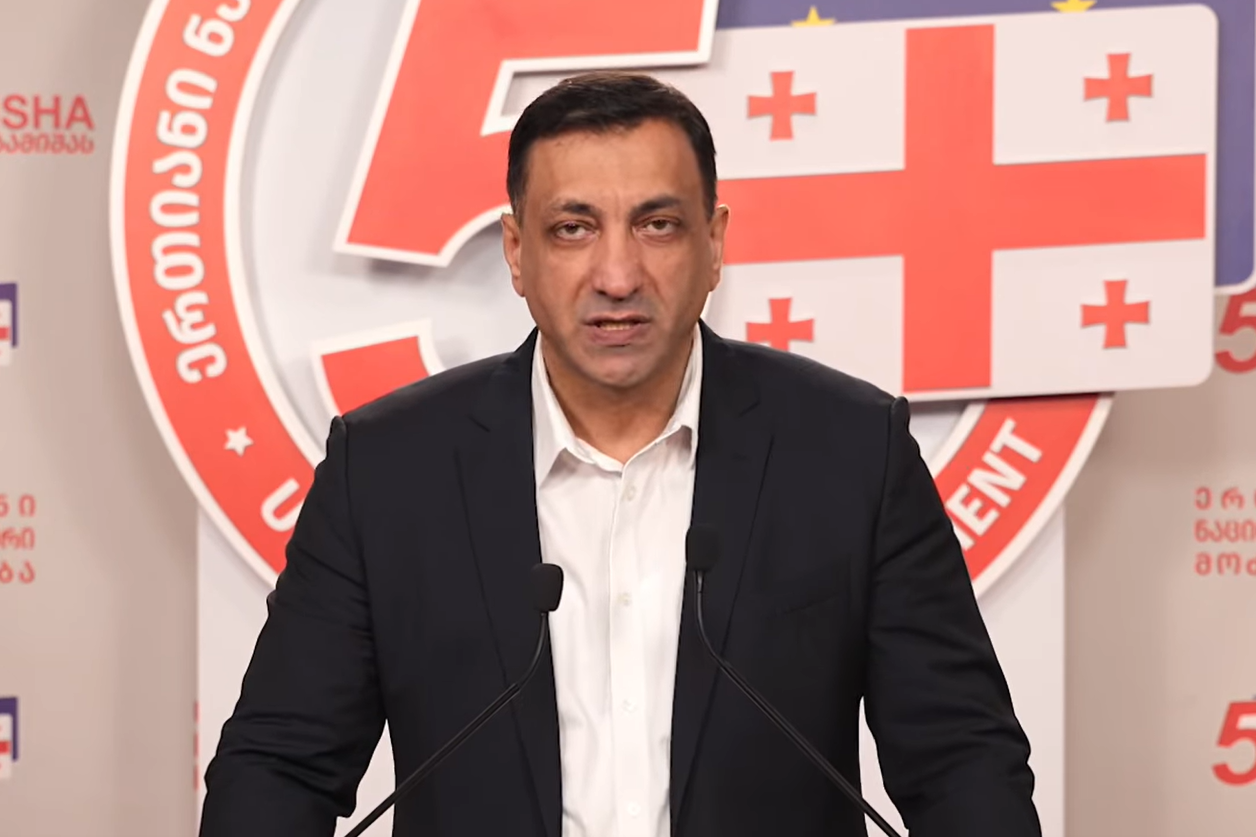Georgian courts consider banning lawyers from bringing phones and laptops into courtroom

Georgia’s High Council of Justice appears to be considering a total ban on all electronic devices, including mobile phones, from individuals during court proceedings, with one member of the council specifying that the rules would ‘apply to everyone’, including lawyers, as well as journalists.
It comes as the courts have stepped up efforts to prevent journalists and others from publishing recordings of politically sensitive cases, such as of protesters and opposition figures. Judges have continued to face scrutiny from within Georgia and abroad over the trials.
A ban on filming and recording was first adopted in June, though court attendees, including journalists and lawyers, have still been able to bring phones and laptops into the courtroom before now. The recent installation of phone lockers in court buildings has led to speculation about a possible tightening of the ban.
On Wednesday, Judge Dimitri Gvritishvili told reporters that he did not understand why the position of Georgia’s Bar Association — that a ban on bringing mobile phones into courtrooms would not apply to lawyers — ‘reassured lawyers’.
‘I don’t know, everyone has their own opinion. I do not know why it reassured them or why they interpret the law that way’, Gvritishvili said.
He went on to claim that the decision was being enacted to stop secretly filmed videos from court hearings from being disseminated.
‘Any technical device that can be used for recording, and which gives the possibility of obtaining and subsequently distributing illegally obtained footage — as has happened before — must be restricted’, he said.
He further emphasised that electronic devices had disrupted ‘the proper and lawful consideration of the case’, claiming that the court was spending ‘unnecessary time and energy to neutralise’ incidents caused by live broadcasts.
‘The public was seeing almost every day what was happening during court hearings — in the lobby, in the yard, pushing and shoving, clashes with bailiffs, etc. All of this was interfering with the proper administration of justice’.
In response to Gvritishvili, the chair of the Georgian Bar Association, Davit Asatiani, argued in a post on Facebook that the ban on photo, video, and audio recording in court ‘cannot, under any possible interpretation, become grounds for confiscating electronic devices from lawyers when entering the court building’.
He said that the mobile phones and laptops were ‘essential tools’ for lawyers, and that there had never been a case in which a lawyer had used such devices to record a video.
‘A lawyer has no need for this, since, as a subject participating in the proceedings, he already has unlimited access to the audio protocol and, if necessary, to the video recording materials in the courtroom’, Asatiani wrote.
He noted that despite Gvritishvili’s statement, there had been no restriction on the use of electronic devices for lawyers in court as of yet, and that it had been confirmed to him by judicial representatives that there were no plans for such a restriction.
However, he officially appealed to the High Council of Justice for clarification due to the ‘urgency’ of the situation.
‘The Bar Association will not allow such an interpretation of the law or the introduction of such incorrect practices that would make it impossible to fully carry out our activities, and I hope that we will all be unanimous on this issue’, Asatiani concluded.
According to new legislation restricting media coverage of court trials, filming is prohibited inside court buildings — including courtrooms and hallways, as well as courtyards.
The only exceptions are for court employees or individuals authorised by the court. It will then be up to the court to decide whether specific footage can be released in accordance with the law.
If a third party wishes to record video or audio of a court proceeding, they must submit a formal motion to the court, justify the need for the recording, and may only be granted that right if the judge approves the request.
The amended legislation also removed the prohibition on the confiscation of personal belongings — including mobile phones and computers — from individuals who have entered the court building in accordance with established procedures.
The ruling party introduced the amendments amidst the trials of hundreds of people arrested during anti-government protests in Georgia — hearings that have been widely covered by independent media and those critical of the government.
Restrictions on recording in court have previously been enforced in Georgia: in 2007, they were imposed by the then-ruling United National Movement (UNM). However, the restrictions were lifted under Georgian Dream’s rule in 2013.






![Baia Margishvili standing in central Tbilisi with a sign reading: ‘The Prosecutor’s Office [is] a punitive squad. How many more innocent people will you put in prison?’ Photo: Mariam Nikuradze/OC Media.](/_next/image/?url=https%3A%2F%2Fassets.bucket.fourthestate.app%2Foc-media-prod%2Fcontent%2Fimages%2F2026%2F02%2Fcalls-for-sanctions-and-raids-19-10-25-48.jpg&w=3840&q=50)




